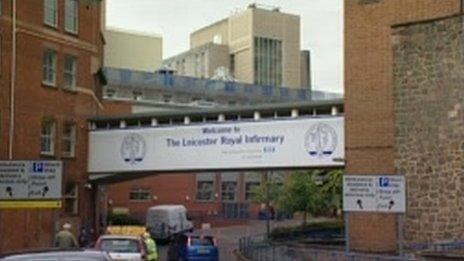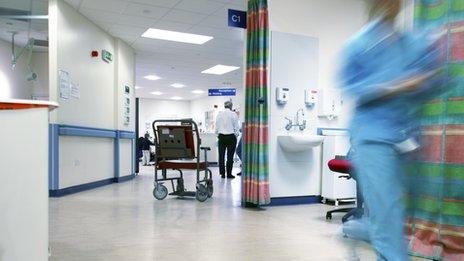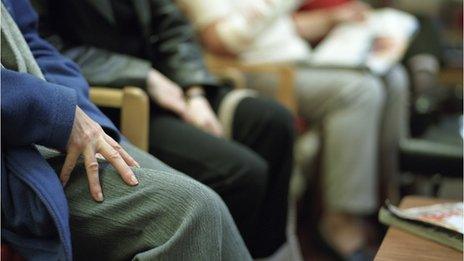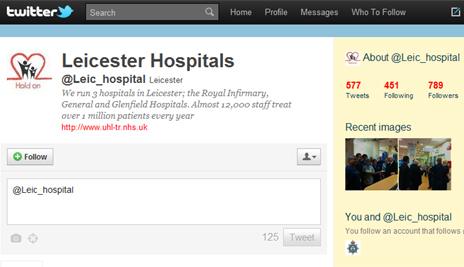Leicestershire patients 'at risk', says report
- Published

More frail and elderly patients need to be treated at home, the report says
Patients in Leicestershire are being put at risk because of a disorganised health system, says a new report.
A six-month review of the service has found there were transfer and assessment delays for patients and communication problems.
Giving more than 180 recommendations, the report also calls for more patients to be treated at home.
An NHS spokesman said many of the changes were already being implemented.
'Level of mistrust'
The independent report commissioned by the region's health services explored departments at Leicester Royal Infirmary (LRI) as well as other hospitals and health centres.
It came after the LRI was found to be one of the worst performing hospitals in the country for emergency admission in a December 2013 report.
Officials said the LRI's A&E department was built to treat 100,000 patients annually, but is currently seeing 160,000 patients a year.

Rob Sissons, Health Correspondent, BBC East Midlands Today
In some ways, identifying what is wrong in the health service is the easy part.
Fixing it is a far more challenging proposition.
Dr Ian Sturgess, a renowned troubleshooter, identifies clearly the huge pressures that the NHS in Leicestershire and Rutland is under.
He identifies the prize - an improved healthcare system where patients get home quicker and frail patients with chronic conditions get support they need in the community.
Of course, people have been discussing that for years. A buzz phrase in the world of NHS jargon is "care closer to home ".
There are 183 recommendations for change but making sure everyone is on the same page will be the tricky part to make sure it is sustainable.

The report, prepared by former geriatrician Dr Ian Sturgess, said "a level of mistrust" exists between different departments and centres in the Leicestershire, Leicester and Rutland urgent care system that results in "repeat assessments" of patients.
He writes: "The first step in resolving this is for the system to accept that for a variety of reasons what has been designed is not providing the highest quality of urgent health and social care the population deserve.
"There are very significant opportunities for quality improvement with reductions in mortality, harm and improvements in patient experience by improving the processes identified."
A hospital spokesman said local NHS organisations and councils have already been working with Dr Sturgess to tackle the issues.
Azhar Farooqi, of the city's clinical commissioning group, said: "The review has confirmed a lot of what we already know about what's not working in our system...while many of these things are already being tackled or were planned, the report has helped us to re-focus our efforts."
- Published20 December 2013

- Published18 December 2013

- Published13 December 2013

- Published3 December 2012

- Published30 November 2012

- Published24 January 2012
